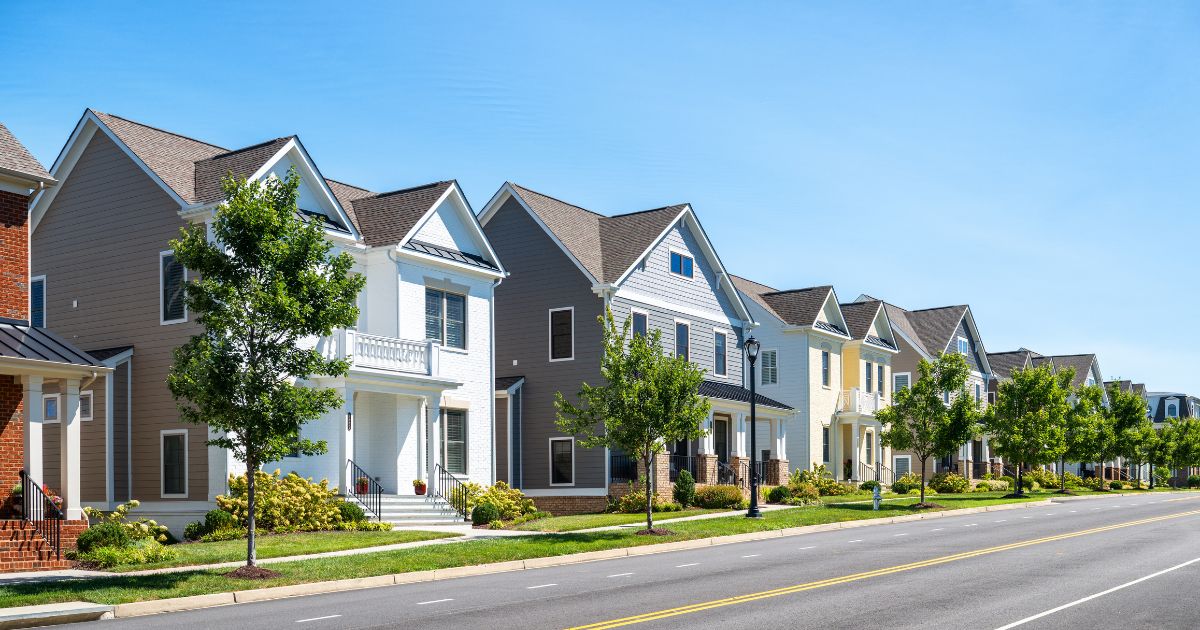DEI woven into plans for major South Carolina cities draws scrutiny
The article discusses how major cities in South Carolina-Columbia,Charleston,Greenville,and spartanburg-have deeply integrated diversity,equity,and inclusion (DEI) initiatives into their comprehensive planning documents across various sectors such as economic progress,public safety,transportation,housing,and cultural programs. This widespread embedding of DEI has drawn criticism from several state leaders, including Republican gubernatorial candidates and lawmakers, who argue that such policies have no place in state governance and may undermine public safety. The U.S. Department of Justice has also expressed concern, warning that some DEI efforts risk violating constitutional protections of fairness and equal treatment.
Despite South Carolina being a predominantly conservative state, experts note that federal funding requirements, such as those tied to the Biden administration’s Infrastructure Investment and Jobs Act, have encouraged the adoption of DEI policies even in conservative areas.Some city officials, like Charleston’s mayor, are reportedly rolling back certain DEI policies amid the controversy, although DEI remains a core element in many city plans.
Detailed examples include Charleston’s housing and public safety plans, which prioritize equity and aim to increase diversity in police and fire departments through recruitment and training reforms. Greenville emphasizes DEI in hiring, police training, economic development, and public amenities, frequently enough highlighting support for LGBTQ+ communities. columbia’s 2036 master plan incorporates equity considerations in transportation, economic projects, cultural resource allocation, and community facilities, aiming to dismantle systemic inequities. Spartanburg integrates DEI principles into safety plans,housing,and economic initiatives,with explicit goals for equity-focused training and community engagement.
the comprehensive inclusion of DEI in these cities’ policies has sparked a significant political debate between those advocating for such initiatives to address historical inequalities and others warning against preferential treatment and the use of taxpayer dollars for these purposes.
DEI woven into plans for major South Carolina cities draws scrutiny from state leaders and DOJ
South Carolina’s leading cities have systemically embedded diversity, equity, and inclusion initiatives into their master plans, sparking outcry from top officials.
Columbia, Charleston, Greenville, and Spartanburg are among the cities that have incorporated extensive DEI measures into foundational blueprints, including economic development, safety, transportation, housing, cultural, police, and fire department plans, according to an investigation by the Washington Examiner.
Upon reviewing those measures, several South Carolina lawmakers, including Rep. Ralph Norman (R-SC), who is campaigning to become the state’s next governor, are speaking out, saying DEI has “no place” in the state. South Carolina Lt. Gov. Pamela Evette, also a GOP gubernatorial candidate, has added her voice to the fray, arguing that such policies are “dangerous and undermine public safety.” And the Justice Department said it is on “high alert,” warning that “DEI initiatives, such as these in South Carolina, risk violating citizens’ constitutional protections of fairness and equal treatment under the law.”
“Taxpayer dollars should never be used to enforce policies and initiatives that give preferential treatment based on unlawful racial discrimination,” Assistant Attorney General for Civil Rights at the Department of Justice Harmeet Dhillon said in a statement. “This Division will be on high alert to ensure all American cities respect our nation’s civil rights laws.”
While South Carolina is a solidly red state, Judge Glock, director of research at the Manhattan Institute, said he’s not surprised DEI programs are active in its cities. That’s partly because most red states haven’t passed comprehensive laws banning DEI or explicit racial preferences in all public institutions, he said, and also because the Biden administration’s Infrastructure Investment and Jobs Act often conditioned federal grants for housing and transportation and infrastructure projects on adopting DEI-style policies. This encouraged DEI’s spread nationwide, “even in more conservative areas,” Glock said.
CHARLESTON
In response to questions, the city said that some DEI policies are being rolled back by Mayor William Cogswell, who last year became the first Republican to assume the position since 1877.
“The current administration is aware of the concerns raised and is working closely with its legal team to ensure that all city practices comply fully with state and federal law,” Deja Knight McMillan, Charleston’s Chief Communications Officer, said.
DEI is ingrained in the city’s five-year housing plan. The “Housing for a Fair Charleston” plan for 2025-2029 “focuses on the importance of equity, of acknowledging that there are inherent inequalities present in our society that makes things more difficult for some.” It heralds Seattle’s Equitable Development Initiative, which seeks to benefit “historically marginalized communities,” as an example for Charleston.
DEI is endorsed in the city’s 2024 budget and capital improvement plan, when speaking of practices set by the Medical University of South Carolina that infuse “diversity, equity, and inclusion across academic programs and at the highest administrative levels.” The plan names ensure “all” Charleston’s planning initiatives are “viewed through an equity lens” as a “core responsibility” and describes “helping neighborhoods and organizations grow and develop equitably” as a “core responsibility.”
DEI initiatives are championed in the city’s 2022-2026 plan for the Charleston Fire Department, as well as the city’s 2020-2025 Strategic Leadership Plan for the Charleston Police Department, which states that “diversity, equity, and inclusion will guide hiring, training, and promotion practices.” The CPD’s 2024 report also discusses how to implement DEI-oriented recommendations guarding against “racial bias.”
The fire department’s planning documents name “a lack of diversity” and a failure to be “creating an inclusive environment” as a “weakness;” describe goals to improve DEI for members as an “opportunity;” and name as an “objective” plans to “pursue a more diverse and inclusive environment within the CFD” within 1-3 years, including through a recommendation to increase DEI training “for all command staff.”
The police department’s plan states that DEI “will guide hiring, training, and promotion” practices; calls for the hiring of more LGBT people and Hispanics; calls for the “recruitment of women and minority group members to meet and maintain diversity goals,” pointing to goals of up to 37% made by an audit for “racial bias” known as the CNA recommendations; calls for the CPD to “increase diversity” in its Explorers Program and Youth Citizen Academy by 35%; and calls for more police training on “implicit bias,” “diversity issues,” “cultural awareness and sensitivity.”
The CPD’s report discusses the implementation of the CNA recommendations. It states that the department “should closely re-examine the demographics of each specialized unit and team to ensure that these teams and units are diverse and inclusive”; and calls for the CPD to produce an annual demographic profile of sworn and civilian personnel, “tracking over multiple years gender, race…and other relevant variables pertinent to having a diverse and inclusive department.”
GREENVILLE
When pressed on DEI embedded in Greenville’s blueprints, spokeswoman Beth Brotherton said the city is “committed to ensuring” it complies “with local, state, and federal laws while fostering a community that fairly serves all residents and businesses in alignment with civil rights requirements.”
Greenville has a DEI page on the city’s website that links to an LGBTQ+ support page. That page notes Greenville has a separate city LGBTQ+ liaison and another Greenville Police Department LGBTQ+ liaison. The city also has a DEI initiative report, which states, “diversity, equity, and inclusion are at the core of who the City of Greenville is.”
“We are committed to advancing diversity, equity, and inclusion in all its forms. These values are an integral component of our culture and business practices and vital to achieving our vision of ensuring equal opportunities and equitable outcomes for all,” the report states.
The city highlights DEI in the recruiting process, saying “all new hires complete diversity training,” including LGBT and “diversity awareness” courses. It states that police department personnel undergo “fair and impartial, implicit and explicit bias, [and] racial profiling” training.
DEI is playing a key role in developing Greenville’s Parks, Recreation, and Tourism Master Plan. Agency, the firm the city hired to carry out the PRT plan, says on its website that it holds a “mission-driven practice dedicated to addressing social equity,” adding that “diversity and inclusion are foundational to how we see, understand, and, ultimately, shape” public spaces, parks, and streets in cities.
Key issues that must be considered in the PRT Master plan include the “assurance that all policies and practices are inclusive and equitable…[and] implementation of initiatives that support diversity, equity, and inclusion in all endeavors,” according to the city website, which applauds Agency for holding a “strong commitment to equity and inclusion.”
Greenville’s Economic Development Strategic Plan speaks of making DEI “an economic development goal.” Resonance, the firm leading that plan, says on its website that: “We believe that absolute economic results are not enough, and that growth and the opportunities it creates should be as shared and equitable as possible.”
The plan states that Greenville must be “intentional about inclusivity and make equitable infrastructure” investments; asserts “mindful economic development” recognizes “areas of inequity;” calls for support and training programs specific to “minority-owned businesses to create a level playing field;” and calls for “a citywide DEI study to better understand challenges and opportunities.”
COLUMBIA
When pressed for comment about themes of DEI threaded throughout city documents, including its 2036 plan, which is branded as the “blueprint” for how South Carolina’s state capitol will develop over the next decade, a Columbia official called the plan “old.”
The city is committed to aligning with all federal and state government precedents and standards with a priority for compliance, the official said. However, as a whole, Columbia still plans to follow the strategic direction of the plan, while it is not set on strictly adhering to its practices, the official said.
The plan’s economic development component names “equity” as one of the six criteria for consideration of gateway and corridor improvements. It asks the city to consider: “Does the project benefit underserved communities?” And it recommends an “Equity composite measure” that weighs families living near or below the poverty line, non-white populations, and non or limited English speaking households.
The plan’s transportation component notes that the city historically focused on five components: engineering, education, encouragement, enforcement, and evaluation & planning. The city noted it will add equity as a sixth component, because “improving safety is also a question of equity.” It recommends that when Columbia develops a transportation project prioritization framework, the city consider equity because it is“ critical both to the existing conditions analysis and the recommendations of the plan,” and states that for the report, “an equity analysis that took into account the location of vulnerable populations was critical to the planning process.”
The 2036 plan’s cultural resources component states that stakeholders “advocated for embracing diversity and dismantling inequitable systems by examining unconscious bias in the allocation of public resources dedicated to supporting arts and culture;” and notes “a desire to invest in inclusion” so Columbia can create a “more equitable future.”
The city’s ten-year plan for its communities facilities component calls for data to be collected regarding city policies that “incentivize or require resiliency and equity in projects or developments”; issues a recommendation calling for the city to “examine, revise, and expand procurement procedures” to ensure contractors “are more reflective” of Charleston’s population; and notes recommendations to advance contracts for LGBT-owned firms, pointing to an effort from Nashville that allowed offificials to “better understand the availability of LGBT firms and assess if it is contracting with them equitably.”
The community’s facilities component additionally calls for city-wide training focused “on sensitivity and inclusion,” including about “gender identity terms and concepts, the city’s Fair and Impartial Policing policy, microaggressions, and implicit bias issues … to ensure members of minority or vulnerable communities” are treated with empathy; and heralds the Richland County Sheriff’s Department Gay and Lesbian Liaison Office’s “specialized customer service” for the LGBT community as a model.
SPARTANBURG
Spartanburg did not respond to a request for comment about DEI elements in planning documents, including the county’s 2025 report on its recovery plan for fiscal funds, which states goals “to promote equitable outcomes.”
DEI measures are systematically incorporated into the county’s Safety Action Plan, released in 2024, Spartanburg’s 2024-2028 consolidated city plan, and its 2023 city plan. The latter document contained eleven recommendations to “increase diversity and inclusion” in the business community; another ten recommendations for implementing “equity” overall, including by requiring DEI training for “staff at all levels to hold everyone accountable;” and applauded the city-run One Spartanburg Inc. and its Inclusion Council as a “model,” naming “the major initiative of Diversity and Inclusion as a core focus.”
The city website continues to note its Human Resources Department seeks employees who support “inclusion.” The website also contains a page called the “Office of Strategic Partnerships and Opportunities,” formerly known as the office of “Equity and Inclusion,” which is focused on building “an inclusive and equitable culture.”
The website references goals to promote training “for equity and inclusion for City employees, and to create data-driven solutions to address equity and inclusion” in Spartanburg. “We work closely….to build a collaborative network of staff and residents who put equity and inclusion at the forefront of all we do,” it adds.
Spartanburg’s 2024-2028 plan warns that the city’s affordable housing plan “lacks equity focus;” says select communities will begin to develop “Equity Plans;” and states that the city “has committed to an equity-focused plan” to address “barriers.”
During a meeting about the Safety Action Plan, the City Council said that making residents safer “cannot succeed without a focus on equity and identifying communities that have disproportionate traffic safety impacts.”
CONSERVATIVES FIND DEVIL IN THE DETAILS IN WAR ON DEI
The plan says “equity is integrated throughout” the safety blueprint; identifies impacts on “historically disadvantaged communities to set a foundation for equitable actions;” and calls for “Equitable Transportation Communities” that identify census tracts as “disadvantaged” based on “social vulnerability, transportation insecurity, health vulnerability, environmental burden, and climate and disaster risk.”
The plan calls for an “Equity Analysis Framework” to identify communities that have “disproportionate safety.” The analysis holds “the express purpose of influencing the decision-making.” Recognizing that traffic violence holds “disproportionate impacts on people of color, low-income households, and other communities that have been marginalized, focusing interventions and improvements to serve these communities advances equity,” it says.
" Conservative News Daily does not always share or support the views and opinions expressed here; they are just those of the writer."




